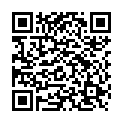|
|
|
| Module code: EPS.TEC1 |
|
|
1V+1LU (2 hours per week) |
|
2,5 |
| Semester: 1 |
| Mandatory course: no |
Language of instruction:
English |
Required academic prerequisites (ASPO):
- |
Assessment:
Exam
[updated 13.11.2023]
|
EPS.TEC1 (P231-0157) European Project Semester, Bachelor, ASPO 01.10.2024
, semester 1, optional course
IPS.TEC1 International Project Semester, Bachelor, ASPO 01.10.2020
, semester 1, optional course
Suitable for exchange students (learning agreement)
|
30 class hours (= 22.5 clock hours) over a 15-week period.
The total student study time is 75 hours (equivalent to 2.5 ECTS credits).
There are therefore 52.5 hours available for class preparation and follow-up work and exam preparation.
|
Recommended prerequisites (modules):
None.
|
Recommended knowledge:
Programming skills
[updated 24.02.2021]
|
Recommended as prerequisite for:
|
Module coordinator:
Prof. Dr. Frank Kneip |
Lecturer: Prof. Dr. Frank Kneip
[updated 24.07.2024]
|
Learning outcomes:
After successfully completing the course, the students
- are able to use the Arduio IDE (Integrated Development Environment) in order to programm a microcontroller (Arduino)
- can depict the differences of an implementation for microcontroller based systems and offline implementation
- can design a flowchart for the microcontroller based system
- can implement code for the Arduino based on a given flowchart
- can integrate selected sensors and actuators using the microcontroller
[updated 24.02.2021]
|
Module content:
Basic knowledge of Arduino boards and related components (e.g. breadboard,...) is provided.
An introduction to programming a microcontroller (e.g. Arduino Uno) and the integration of sensors and actuators
in order to interact with the physical environment is provided.
The differences concerning an implementation for microcontroller based systems and an offline implementation is discussed.
The design of a flowchart for the microcontroller based system and the implementation of code for the Arduino based on a given flowchart are concerned.
[updated 24.02.2021]
|
Teaching methods/Media:
Project based teaching (online and/or offline)
including programming tools (e.g. Arduino IDE) and physical hardware (Arduino, sensors, actuators,...)
[updated 24.02.2021]
|
Additional information:
The course provides required knowledge for the IPS.TEC2a, IPS.TEC2b and IPS.TEC2a course.
[updated 24.02.2021]
|
Recommended or required reading:
Literature references will be provided during the lecture
[updated 24.02.2021]
|

